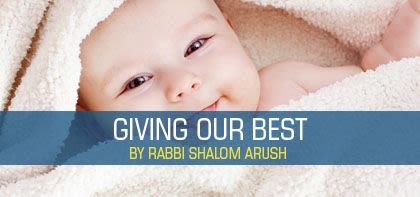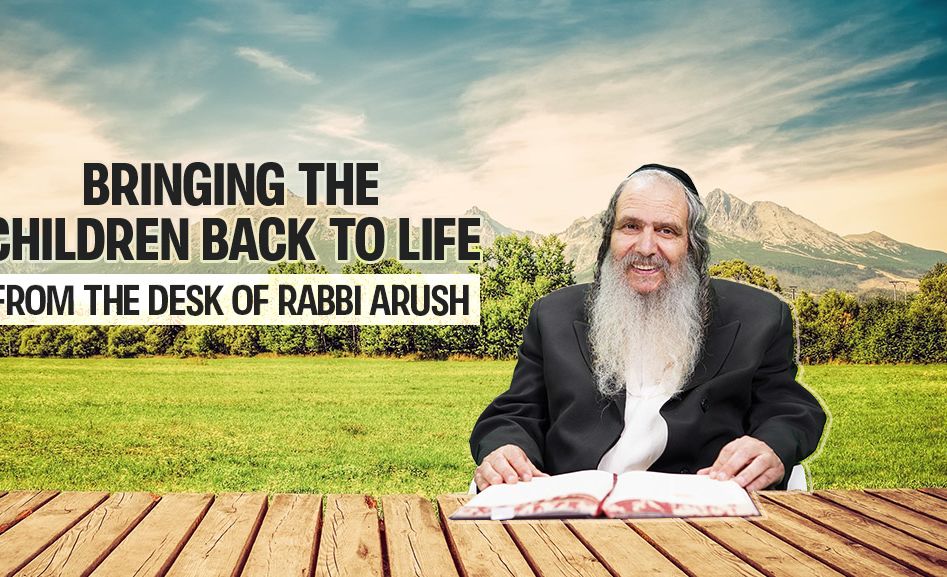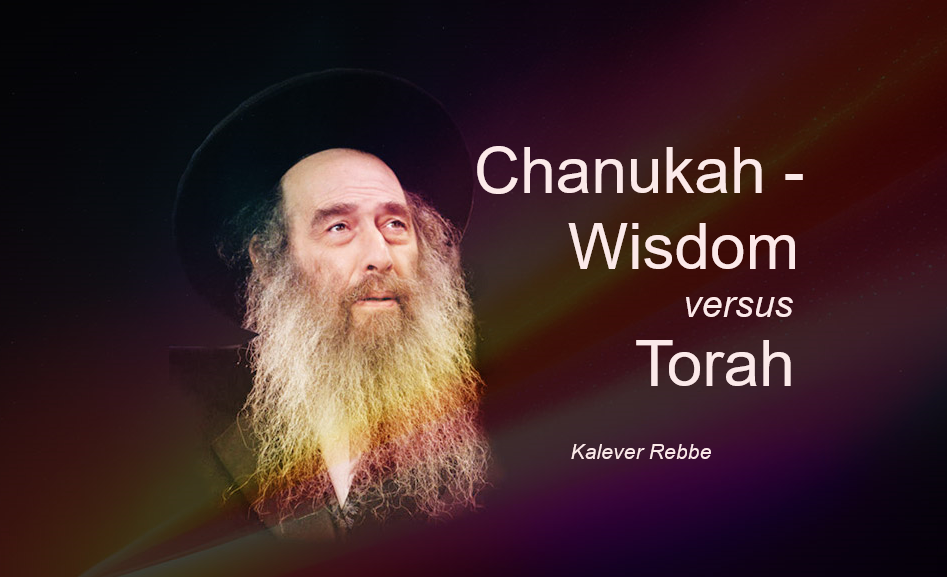
Giving Our Best
The first and most important element of child education is parents' education of themselves. A parent must understand that his primary task on earth is to rectify himself...

Usually, when you speak to people about child education, they become overwhelmed. They think you’re trying to teach them all types of complicated theories that psychologists and educators learn in post-doctoral programs.
Successful education of children certainly doesn’t depend on theories and graduate degrees. The first and most important element of child education is parents’ education of themselves. A parent must understand that his primary task on earth is to rectify himself. As such, whatever a parent sees askew in his child should arouse him to begin a process of self-evaluation and soul searching, for the child is the mirror of the parent.
Education means giving. A parent must give his child anything he wants to teach that child. For example, a parent cannot teach generosity and good manners if the parent is stingy and bad-mannered. The rule of thumb in educating our children and passing values on to them is: If we live it, we can give it.
Let’s imagine that our child is a completely clean and empty vessel. It’s our responsibility as parents to fill that vessel with the finest contents, among them intellect and character. To paraphrase our sages, educating our children is like writing on brand new paper.
Let’s stop and think: can someone give something that he doesn’t have? Certainly not; a person with a ten-dollar bill in his pocket can’t give a one-hundred-dollar gift, regardless of how he desires otherwise. The same holds true in child education. A parent or teacher can’t teach a child to have good manners and character traits, and hold to a high ethical standard, if they themselves lack these vital assets.
We’re not only talking about lofty ideals. If a parent is lax in something as mundane as personal hygiene, for example brushing his teeth regularly or bathing daily, the child too will be lax in the same way. The parent cannot give the child what he lacks himself.
Especially in the area of spiritual endeavor, parental “actors” won’t succeed. If a parent wants to teach the child the love of Torah or the awe of Hashem – while lacking both – the child will not heed the parent. If the parent preaches Torah learning yet spends time reading newspapers, he can’t expect his child to learn and love Torah. The Gemara teaches explicitly that if a person has yirat shamayim – the awe of Hashem – his voice will be heeded. This Talmudic rule of thumb is especially true in the area of child education. A parent must be sincere – one who practices what he preaches – and not an actor.
Parents who grew up in families with parents who made serious mistakes in child education often repeat the mistakes with their own children unless they make a concerted effort to better themselves. A parent therefore has the responsibility to mold himself properly before he can mold his child.
Consequently, our initial challenge in child education is to better ourselves. Few of us have perfect parents who were perfect role models. We all have shortcomings. By rectifying our shortcomings, we’ll be in a better position to give to our children.
According to the above principle that a person can only give what he himself possesses, we can now understand the well-known anecdote about the “Chofetz Chaim” (Rabbi Yisrael Meir Kagan). A couple asked the Chofetz Chaim to bless their newborn baby that he grow to be a righteous scholar. He answered that they came too late. The couple was bewildered. Why late? The baby’s only a month old! The Chofetz Chaim told them that they should have come to him twenty years earlier. Again the couple didn’t understand; twenty years ago, they were only toddlers. The Chofetz Chaim was in effect telling them that they won’t be able to give their child anything that they don’t possess themselves. If they want their child to be an upright Torah scholar, then they must be sincere upright lovers of Torah who do their utmost to observe Hashem’s commandments.
The couple frowned, obviously disheartened. “Don’t worry,” the Chofetz Chaim consoled them. “I wanted you to internalize an important principle. If from this day on, you do the very best to polish your character traits and grow in love of Torah and awe of Hashem, your reward will be double: you’ll see success in your own lives and you’ll derive gratification from all your offspring, who’ll grow in the path of righteousness.”
We come to an amazing conclusion: The foundation of educating our children is the education of ourselves. Again, if we live it, we can give it. Any shortcoming we see in our children should be a warning light about something wrong in ourselves. We are therefore best advised to focus on our own shortcomings, and not on those of our children.











Tell us what you think!
Thank you for your comment!
It will be published after approval by the Editor.